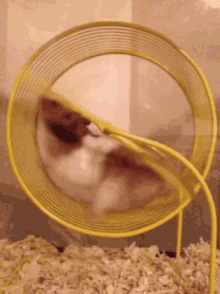
It’s the first week of a new year, and for those who gave up their job search around the holidays, it may be time to punch up that resume and get back on the job horse.
In today’s #TBT post, I was thinking along those same lines five years ago in those pre-pandemic radio days. But were those times all that different than what job seekers are facing today? Is today’s environment even more stacked against job seekers?
Back in 2019, I ran across a great article posing questions for those on the hunt for “the perfect job” – or better put, “the next job,” if indeed it is still out there.
And that got me thinking, how much has radio’s employee population shrunk during these five years. Back then, I made a reference to the “Great Recession.” But now, the reverberations of COVID on the radio industry are still being felt. And visions of cost-savings (job-savings?) introduced by advancements in AI loom everywhere.
The thing I love about these throwback posts is they give us an opportunity to recall how things were at various intervals in radio time. But they also remind us that the industry may have not been all that different than it is today. Hopefully, these signs from the story’s author and my additions are helpful to those of you on the outside looking in.
And perhaps you might move from looking for your next radio job, and instead, to considering your next career.
There’s nothing wrong with that. In fact, it might end up being one of the smartest things you end up doing in 2024. – FJ
January 2019
It’s that time of year. Many in radio (or out of radio trying to get back in) find themselves at a career crossroads.
But it often runs deeper than that. That’s because an industry that was quirky – but predictable – for decades is now surrounded by question marks. And it seems the longer one is “out” of the business, the tougher it is to get back “in.”
Many radio professionals also use an “exit” – whether instigated by their employer or not – as an opportunity to reassess both their career path as well as the trajectory of the radio industry.
And these days, I seem to be taking more and more calls and setting up coffees with broadcast professionals in search of their next opportunity in radio – or not. I’m not just being asked to think about “any programming gigs out there?” Instead, many of these conversations run bigger than that. They often encompass expansive, more career/future questions, often leading to my “take” on the state of the industry.
It used to be that a programmer, jock, or sales person on the beach would simply seek their next position doing pretty much the same thing – either elsewhere in town or in another market. Today, unemployment in radio often spurs a career fork-in-the-road where many important questions are asked:
in radio often spurs a career fork-in-the-road where many important questions are asked:
Do I still want to stay in the game?
Are there broadcasters out there who will appreciate someone like me?
Do I have the chance to grow?
How much more of my life do I want to devote to this industry?
Can I take my skills elsewhere?

I have a unique perspective on the industry, interfacing with dozens of broadcast companies and hundreds of stations, both in commercial and public radio. And meeting thousands of radio careerists at the many conferences and conventions I attend during the course of a year provides an overview of where the business may be headed and what broadcasters are seeking.
That doesn’t make it any easier to provide counsel. And I truly empathize with those trying to “figure it out,” especially for industry veterans who have been plying their broadcasting craft for years or even decades, and find themselves wondering it there’s a place for them in today’s radio business.
So, when I ran across a story in Fast Company – “5 Signs You Need A New Career Path” by Anisa Purbasari Horton – it jumped off the screen. While it’s written from a generic career perspective, there are helpful questions for radio people struggling to figure out “What’s next?”
I chose four of her five signs that every “pro on the loose” should hold up against themselves as they re-evaluate their next career rung:
1. When your job is affecting other areas of your life negatively
Many of us have looked this one right in the eye. Like any career that feeds on passion, it’s easy to turn a radio job into a mission or even a crusade. I talk to many these days who are burned out, running on fumes, and simply out of bandwidth.
I’ve been there before as many of you have. Learning when to walk away from a job or radio before you hurt those around you – or yourself – is an important consideration, no matter the industry you’re in.
2. When your job (or the company you work for) no longer aligns with your values
You hear a lot of industry chatter about various companies – what they stand for and how they do business. If you have a particular bias, then don’t  go to work for them. And that means not interviewing with them if you truly believe their company philosophy is out of sync with yours. Too often, we see radio broadcasters take jobs with companies that have a certain reputation, only to end up unhappy and even surprised by the outcome.
go to work for them. And that means not interviewing with them if you truly believe their company philosophy is out of sync with yours. Too often, we see radio broadcasters take jobs with companies that have a certain reputation, only to end up unhappy and even surprised by the outcome.
Of course, it might also help to do some due diligence in the space because you might find your perception of certain companies isn’t especially accurate. It’s easy to get caught up in radio scuttlebutt and gossip that may not be a true reflection of what a company or its management team is all about.
3. Your industry is changing, and your dream job might not exist in five years
It doesn’t get any more real than this. Anyone’s who been in radio for a couple of cups of coffee knows that hiring priorities have changed – in some cases, radically. While there’s been an understandable focus on radio industry layoffs – especially since the Recession – there’s been little attention paid to new positions that have been created over the last decade or so.
Radio companies are becoming media companies. And that means digital staffers, including videographers, social media specialists, event marketers, and other jobs new to radio have become more plentiful during these years. We might expect positions connected to data, podcasting, content marketing, SEO, and lead generation to grow in popularity during the upcoming five years as well.
And that triggers a whole different question:
Do I have the skill set necessary to compete in a changing media landscape? Don’t just gloss over this question because it could be a major determinant in how you make that career decision.
4. Your expectations don’t align with the reality
This is the tough one – when things simply don’t turn out the way you planned. With younger job entrants flooding industries, career disappointments aren’t uncommon.
But with veteran radio professionals, there’s a strong chance that what was once a fun and fulfilling career has now changed – because the industry has changed.
Horton quotes author Suzan Bond:
“Few of us realize from the very start that a dream job is like a mirage in the career desert. Once we get to the spot we’d pinpointed, we discover it isn’t what we thought–it’s actually a little further up ahead, in the distance–so we keep searching.”
And oftentimes, that leads to frustration, because “old school” radio doesn’t really exist anymore. In fact, nothing today is as we veterans remember it. It’s human nature to glorify the past, and get down on the future.
Many in radio get caught up in the romance of the business that was, and continue hoping they’ll find that one situation, that one job or station that provides true fulfillment. Often, it never materializes.
And to Horton’s list, I’ll add two more – one that I learned early in my career. And the second one I’ve picked up along the way.
FJ1. When you can’t define what it is you want to do
During the formative years when I was trying to break into radio, I got the chance to spend time with the GM at a station I was dying to work for. When he asked what type of position I was looking for, I proceeded to give him a list of my many skills, in the hope that he’d hear something that fit a current station need or job opening.
Of course, that plan backfired. As he explained to me, it’s not up to a manager or boss to act as career counselor and direct you toward the right job. It is your responsibility to decide what it is you want to do, and go after it. It requires focus and commitment.
Often when talking to someone looking for their next gig, I hear that same trope: “Well, I’ve done lots of different things, and can fit in just about everywhere.” And I cringe because I realize that most bosses want to hear about your particular passion and your individual talents.
A job or career focus has never been more important.
FJ2: When you feel like you’re on a treadmill and just don’t seem to be getting anywhere
It happens. You do your best at the task at hand, but better compensation and additional responsibilities seem elusive. Maybe it’s time to take matters into your own hand and become more proactive – volunteering for things that broaden your experience and your network.
It’s no guarantee that plan works because some radio bosses  will take advantage, but most respond well to employees looking to make a broader contribution to the enterprise.
will take advantage, but most respond well to employees looking to make a broader contribution to the enterprise.
That’s because many radio stations in 2019 are woefully understaffed, so becoming that “linchpin” as Seth Godin calls it, could open doors and create opportunities. And in the event you’re working for people who are unappreciative or don’t credit your efforts, chances are you’re learning new things you can take with you to that next job.
Navigating a successful career has never been more challenging or uncertain. Even people at the corporate level are questioning many of the “givens” revolving around what it takes to run a successful radio station, cluster, or company.
Reading the radio room – understanding how the needs of the business are changing, and aligning your skills and your mindset to be more congruent with media companies in the digital era – is one of the most important skills you can acquire.
In fact, that’s the “job” we all need to do.
- Turn Up The Radio (If You Can Find It) - May 21, 2025
- Who At Your Station Would The Audience Like To Have A Beer With? - May 20, 2025
- Lessons For Radio From The Recent Google Home Outage - May 19, 2025





Once again Fred Jacobs has hit the nail on the head. Or in this case the top light on the transmitting tower. Things have changed in radio and not for the better. Because of automation, the consolidation of two or more positions into one, voice tracking and the simple closing down of many stations, especially on the AM dial there are just not that many jobs available. Period. And the few that are, at least the good ones are going to be snatched up by broadcasters with experience leaving the beginners out in the freezing cold. Personally I’m trying to put on a station in the not-for-profit sector which is where I believe many of us out of work radio people will have to go if we want a paycheck and flex our creative programming muscles. You all know that famous saying, “The party’s over. Turn out the lights.” I say start your own party. Give it purpose, meaning and show how it can help people. Then set off to find the financial backing to make it happen. Radio has changed. But that doesn’t mean there isn’t room for us older radio folk. We just have to think of a new idea and an effective sales pitch to go with it. And don’t forget to smile.
I apprecaite the kind words, Craft. The world of radio has indeed changed, and that forces all of us who still have that urge to stay in the game to adapt, as you are doing. Let us know how your “party is going. And I like the smile part.